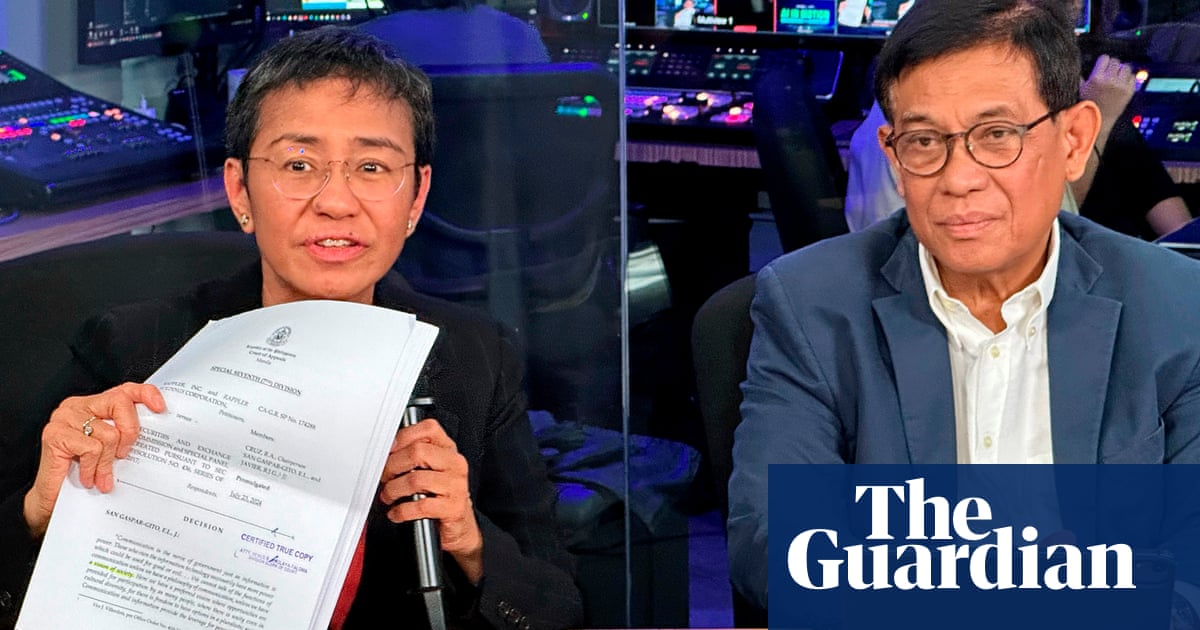
A court in the Philippines has voided a shutdown order that was issued against Rappler, an independent news outlet known for its scrutiny of the former president Rodrigo Duterte.
Rappler, which was co-founded by the Nobel peace prize laureate Maria Ressa, had been issued a shutdown order in 2018, during Duterte’s administration, over claims it had violated restrictions on foreign ownership in media.
The court of appeals overturned the order in a judgment last month, saying Rappler was “wholly owned and managed by Filipinos”. It said it disagreed with a “draconian interpretation” by the Securities and Exchange Commission (SEC), accusing it of a “grave abuse of discretion”.
Rappler welcomed the judgment as “a vindication after a tortuous eight years of harassment”. It said: “It’s a fact that the Duterte government used the SEC order to unleash its power to further harass us, our employees, our stakeholders, and our communities.”
Founded in 2012, Rappler was at the forefront of exposing propaganda spread by online trolls as well as corruption under Duterte. It documented thousands of extrajudicial killings that occurred under his “war on drugs”.
The outlet and its journalists have faced harassment, threats and a series of legal charges, though these have gradually been dismissed or withdrawn. Duterte left office in 2022 after reaching the end of his term limit and was succeeded by Ferdinand Marcos Jr, whose previous alliance with the Duterte family has soured.
There are two remaining cases facing Rappler. The first is a cyberlibel conviction against Ressa and a former researcher, Reynaldo Santos Jr, which the outlet has petitioned for review at the supreme court. Ressa and other Rappler directors are also accused of violating the “anti-dummy law”, which prohibits Filipino nationals from acting as proxies for noncitizens to circumvent legal restrictions.
It is not clear if the SEC will appeal against the recent judgment. Duterte has denied that legal cases were politically motivated. However, he was known for railing against independent media while in office. During his rule, the country’s biggest broadcaster, ABS-CBN, was ordered off air. He once said killing corrupt journalists was justified, saying: “Just because you’re a journalist you are not exempted from assassination if you’re a son of a bitch.”
Earlier this year, Irene Khan, the UN special rapporteur on freedom of opinion and expression, said the Philippines remained one of the most dangerous places in the world for journalists.
Source: theguardian.com


















